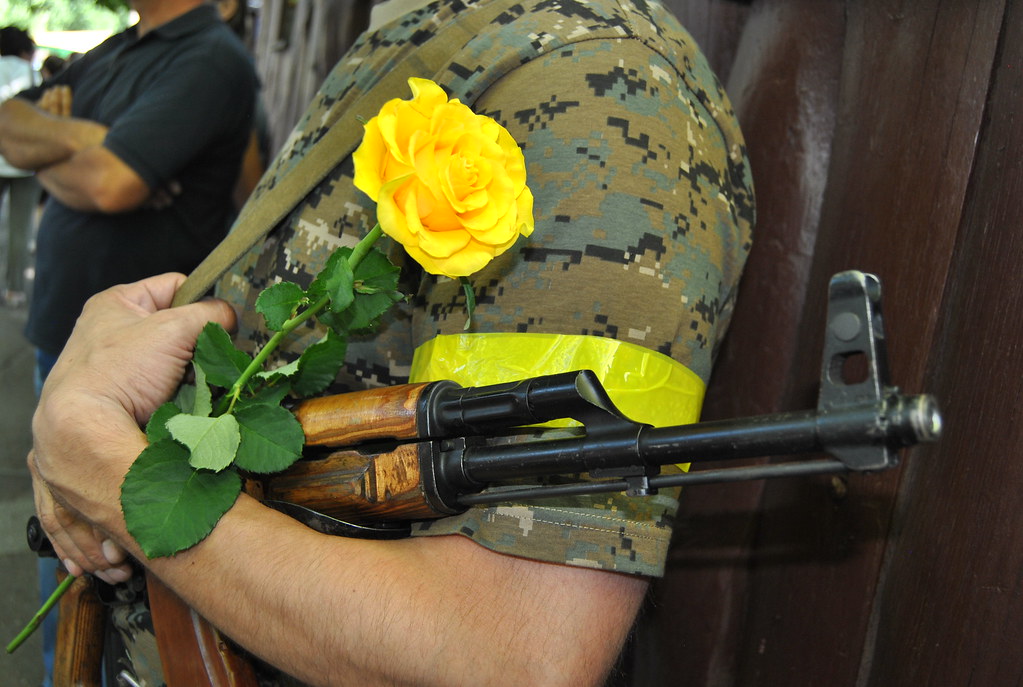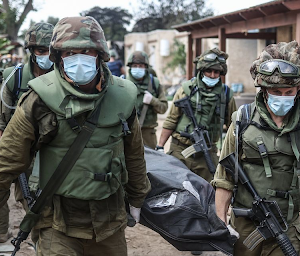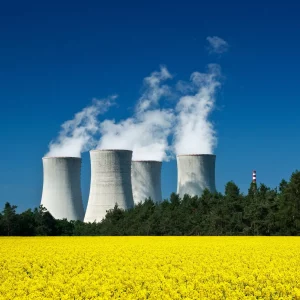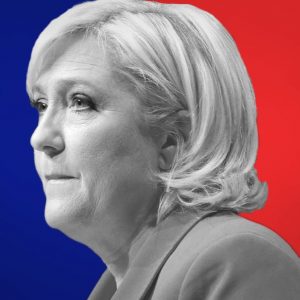Professor Darren C. Zook teaches in Political Studies and Global Studies at UC Berkeley. His research interests include human rights, comparative Asian politics, international law, and the proliferation of weapons of mass destruction. BPR sat down with him, dressed in one of his signature floral-patterned shirts, to discuss the Russo-Ukrainian War’s impact on international law and institutions, as well as his outlook on what should be done in the aftermath.

Interview Transcript
BR: We saw that in the buildup towards the Russian invasion that the state actors and security organizations involved directly or indirectly in this conflict bypassed the UN entirely during long negotiations, instead preferring individual state-to-state interaction. How do you think this reality bodes for the UN’s role as a forum and mediator for geopolitical conflict?
DZ: I mean it’s a serious challenge in terms of the UN here in the sense that… number one, the Russian veto is one of the reasons you would want to bypass a lot of the UN discussions, because you know it is going to be vetoed if it goes to the Security Council. But, it is also true that the negotiators that bypass the UN were still committed– with the exception of Russia of course– to the same international laws that are part of the UN.
Chapter VIII of the UN Charter, for instance, does allow regional organizations and member countries to engage in initiatives and negotiations, as long as they are not directly undermining or contradicting the mission of the UN. So, the fact that they bypassed the UN does not necessarily mean serious cause for concern, and quite frankly like I said, if they had gone through the Security Council, Russia would have vetoed any discussion anyway. They did try a few times, so it seems to me that it’s not an issue of concern. It is a larger question whether this whole Ukraine-Russia thing is going to undermine, you know, the reliability of the UN, but that’s a separate question. But the fact that the way it played out at the beginning in the way it did is not, for me, a cause of concern.
BR: Following onto what you just said, public opinion has been strongly critical against the UN’s inability to effectively deter armed conflict. We know that the UN’s role is not to enforce international law or interfere in sovereign affairs, which inevitably impacts its ability to respond. With this knowledge, do you think the UN could have done any better within its constraints this time, constraints such as Russia’s possession of veto powers?
DZ: No. There is nothing really that the UN could have done. The one thing they did do, which I am happy about, is that Ukraine actually took Russia to the International Court of Justice, which ruled in Ukraine’s favor and basically said that Russia’s actions are clearly acts of aggression. It is unenforceable, but at least it is on the record saying that [the UN] recognizes Russia’s actions are a violation of international law with regards to aggression and waging war.
There is talk, for instance, of possibly removing Russia’s veto power at some point, and that has pluses and minuses. The plus would be that it shows the UN can hold countries accountable for flagrant violations of its own charter and international law; downside is that it might cause Russia to behave in more irresponsible ways… lash out. You know, the idea [from Russia] is that “well, if you downgrade us, we will make you pay for that” or something. So, nobody knows where that is going to go.
But this has been really, really difficult for the UN; it cannot alienate Russia because it is supposed to represent all member countries. They did take a General Assembly vote; only five countries supported Russia (although a lot abstained), so they do at least have a clear statement that the majority of the UN feels Russia is in the wrong here. General Assembly resolutions are not legally binding, they are just statements of will; it may not seem like much, but at least it is something. There is really not much beyond that the UN can do.
BR: In light of Volodymyr Zelensky criticizing the UN during the annual General Assembly for its absence at international platforms meant to mediate the Crimean annexation and its controversies. How do you think the UN can make itself more involved in international affairs in its current state?
DZ: The mission of the UN is to basically guarantee the stability of international peace and security. And to a certain extent, yes, Russia in my opinion has clearly violated international law in multiple ways, but what the UN can do, for instance, is that it can point out that the annexation of Crimea is illegal, but it cannot enforce it because Russia does not see it as illegal. One of the things that this has done, and Zelensky’s right in saying this, is that it points out the limitations of what the UN can do. The UN assumes its member states will all be good-faith actors; Russia is currently not a good-faith actor. So, the UN can say that it is illegal, they can say the recognition of the two eastern provinces in Ukraine by Russia as independent states is also illegal, but at the end of the day, there is no military backing to it. And Russia right now is only speaking the language of using lethal force to express what [they want]. The UN was never built for that. The one time the UN tried to do that, which was the Korean War, it did not go so well. So they will not do that. They will try to convince Russia that it is in its interests to abide by international law and hope that Russia will at some point give Crimea back.
BR: So it connects back to the failure of R2P and the other doctrines that you talk about in class?
DZ: Exactly. The UN came out swinging in 1991 with this can-do attitude, and it is realizing, you know, its own constraints. Everything about the UN’s success really does not rely on the UN’s can-do attitude. It relies upon every member of the UN being a good-faith actor, committed to the same rules of the UN. Ukraine shows that if one member country flagrantly violates those rules, especially when it is a nuclear power, there is precious little the UN can do. It can plead for diplomacy at most.
BR: International institutions often have a state-centric bias and an overreliance on traditional security approaches. In the case of the Russo-Ukrainian War, what are some non-traditional approaches you think could have worked under these circumstances?
DZ: The Russo-Ukrainian War is a tragic example of exactly the type of state-centric bias that I talk about. This is Putin’s war; this is not a war of the Russian people. And yes, it is only working in part because Russia has so firmly taken hold of [its own] propaganda machine, but there are more and more cracks [surfacing]. So what is interesting is how this is also an information war.
That is the one non-traditional part, because what is happening is that hackers and IT people in Ukraine and around the world who support Ukraine are trying to find ways to break through the façade of propaganda in Russia. Even though Putin says cyberattacks are acts of war, if they are done by individuals and not countries, you cannot really call them [acts of war]. That’s probably the most nontraditional element in this: it is basically kind of a global civil society approach, in which people are trying to get information to people to help whittle away the popular support that Putin is trying to generate with his own propaganda.
No state has said, “please hack Russia”, but Anonymous, the hacking group, has said their mission is to support Ukraine and take down Russia. Anonymous is not in any one country; they do not have a location. It is hysterical that Russia claims that they have taken down the website of Anonymous, but then Anonymous went out and said “we do not have a website” (laughs), basically [telling Russia] that they do not know what they are talking about. So it is an interesting kind of citizen-based approach to try and foil the war, which is actually probably working more effectively than anything countries can do, since Putin cannot declare war on individuals, only on states. Putin is 100% a traditional realist who thinks he is Russia. He has zero concern for how the Russian people feel. But people who are either trying to get information to Russians or trying to get Russians to see what is going on to the outside world, that is a very innovative and nontraditional approach to what is happening.
BR: Alright, thank you! And now we will head on to discussions about measures taken in light of the conflict. The Western bloc has implemented sanctions against Russia unprecedented in their scope and impact for a country that plays an outsized role in the world economy. What are some implications of this on future geopolitical actions, especially since we are seeing them bypassing UN frameworks?
DZ: So the traditional approach to sanctions is that [they], even in the UN Charter where they are listed under Chapter VI under peaceful resolution of disputes, are considered non-lethal coercion, which makes them peaceful. The idea was so that you would never go to Chapter VII, which is on the use of force, unless you have exhausted all of your options and sanctions are not working. What is interesting about this is because, in a frightening way, the possibility of nuclear exchange has been put back on the table, since Putin has said [he] might consider the nuclear option if Russia is pushed to its limits. The future might be that people really take a look at, especially if the sanctions succeed, that they may be the new form of conflict resolutions. Now, Putin has said he sees the sanctions as an act of war; in terms of international law, he is completely incorrect.
Sanctions are in fact precisely considered to be a [method facilitating the] peaceful resolution of conflict; they are not considered an act of war. So were [Putin] to retaliate militarily, he would be 100% in the wrong. So, the geopolitical implications of these new waves of sanctions is that if these work, it will unlock a whole new approach to preventing wars or winding them down. And I guarantee that anybody in China who is looking strategically at Taiwan is watching this carefully. The traditional mindset was “our military is bigger than yours, so we can win this”. Now, you are looking at Ukraine, going “Russia’s got 5000 soldiers dead and counting, Russia’s economy…may reach the point of non-recovery, and is it really worth going to war if you suffer that much”. If it works, it might actually be, I do not want to call it an effective new weapon because it is not one; weapons are about lethal warfare, but this is a non-lethal, yet very coercive effort. Nobody has ever applied sanctions on this scale so quickly and so deeply.
BR: On that point, now we will look more into the future. One of the key focuses in your classes is how to establish a “durable peace” between formerly warring entities. What changes and agreements do you think are necessary to achieve this “durable peace” between Russia, Ukraine, and NATO? Can the UN and related organizations play any role in this?
DZ: Russia and Ukraine right now is a worst-case scenario… technically speaking, as long as you have good-faith actors who are stakeholders in an outcome, a durable peace is possible. When I talk about the Dayton Accords in Yugoslavia [in my classes], what you do not want to do is to have an agreement that rewards Putin for what he did, or gives away too much from Ukraine without consulting them. You want Zelensky to be the key actor here, on behalf of Ukraine. What you have to do, and it is hard to think about because right now people are very angry at Putin and Russia, but you have to think in terms of a durable peace. Not what is good for Putin, or getting vengeance, because getting vengeance is one of the things that leads to another conflict. If you basically humiliate Putin, he is just going to sit there and… try to find ways to overturn that.
Zelensky is very impressive; he knows this. That is why he is still talking with the Russians. It is easy for him to say, “I’m not talking to the Russians, it is full war until the end.” That sounds heroic, but it is a terrible idea. So a durable peace between Russia and Ukraine is going to have to find a way for Russia to save face…a graceful way out. It sounds nauseating because you have seen those pictures, innocent people are simply being slaughtered, it really is mass murder. But you have to say, “do we want more mass murder, or do we want to say, Russia can have some dignity out of this as long as we stop the killing.”
To do that, you have to have something that Russia will agree to, Ukraine will agree to, and then if you do it right, you want to bring NATO in on this. It is technically a violation of Ukraine’s sovereignty to get them to promise they will not join NATO, or [for Russia to say] we will not let [Ukraine] join, because a sovereign country can kind of do what it wants, but Ukraine might realize it is in the larger interest to peace to simply declare itself a neutral country: to not join NATO, but to not be an ally of Russia. They can say “We will be a democracy (which Putin did not like), we might join the European Union, but will not join NATO, but if we do join NATO, we will not host any missiles, or something.”
There has to be a way that Russia gets something out of this, even though Russia’s purely the aggressor. And again, a durable peace is really about bringing in every single person who is a stakeholder in the outcome. So, the U.S. is going to have to be involved, Western Europe will have to be involved, and NATO will have to be involved. The UN will need to have some say in this as well. If they can all sign off on something, you are far more likely to get a durable peace out of it. Russia and Ukraine are negotiating now, but it is just for a ceasefire, not for an end to the conflict. To get a true end to the conflict and a durable peace, you have to get everyone involved, and not reward the worst of the actors.
BR: Just to add on to the previous question: what can different international institutions do in terms of assistance and self-reform to help facilitate and maintain the hypothetical “durable peace”?
DZ: So one of the things that will have to be done is, and no one has even talked about this yet: Russia’s economy is going to take a direct hit– a big one. One of the so-called olive branches that could be offered would be that, ironically, the countries that initiated these sanctions might create like a bailout plan, or negotiate better terms. Because if Russia defaults on its debts, they have to restructure. It will be easy to say, “well it is all your fault, Russia, forget [about] you”, but then we forget that Russians are suffering. So if you say that– I know for most people that this is nauseating, why would you do a favor to Putin after what he did– but it is like, but you have to think in terms of what is going to prevent Putin, or somebody else in Russia, from wanting to launch the next phase of the war because he is angry about what happened to Russia. So Russia’s economy will have to be re-engaged with the global economy, but Ukraine’s also just going to suffer billions of dollars of damage as well. Ukraine cannot afford to repair itself. So there is also going to have to be some commitment to a global fund of some sort to help Ukraine rebuild. It is a massive reconstruction effort.
BR: So the IMF, the World Bank, they will all have to come in to play a role?
DZ: Yeah. They will all have to come together with a really special package with very generous terms, because it is a special circumstance. The amount of damage already done is (long pause) breathtakingly awful. Somehow, Ukraine is going to have to rebuild, and they cannot just be left to their own. So in that sense, you will have to give [both Ukraine and Russia] some incentive to want to rebuild and flourish again in the future, in a secure environment. Ukraine is not going to want to build while Russia is threatening wars. So Russia has to have a reason to focus on its own problems as opposed to lashing out against other countries.
BR: Do you think there is any way international law regarding conflict and sovereignty can be rewritten to better deal with state-on-state conflict such as the ongoing war in Ukraine?
DZ: That actually happened in 1977 when the International Committee for the Red Cross and other actors came together and realized that the original Geneva Conventions from 1949 had really missed [the mark]. Warfare went in a very different direction after World War II than what the original Geneva Conventions, based upon the classic warfare in WWII or countries declaring war [had foreseen]; who was at war with whom was very clear.
By the 1970s, there were civil wars, there were groups that were declaring war that were not even nation-states, and what was happening is that the Geneva Conventions being based upon state actors meant that you cannot hold them accountable. They had to revise the rules so that any exchange between two or more groups of lethal violence is covered by the laws of war. I think what is going to come out of the Russia-Ukraine conflict – and this has been a long time coming – is there will have to be a way to implement rules of cyberwarfare, of economic sanctions, of the crime of aggression which Russia is clearly guilty of, and really rethink what needs to happen to the Geneva Conventions and the other laws of war. Because sadly, this might not be the last time we see a conflict like this. So much of, at least Western Europe and Eastern Europe, after World War II was kind of like “this is the peace that will last forever.” And that has kind of been shattered at this point. There is going to be a real rethinking of what the role of international law is in terms of either preventing conflicts, mitigating conflicts after they break out, and also punishing people who are responsible in the aftermath.
BR: For a more personal opinion: how do you think Russia should be punished under the current frameworks of international law? Do you think the current measures being taken are all justified and adequate?
DZ: I think it is… when it comes to war crimes, you punish individuals. And Putin is the one who orchestrated all of this. Putin is very upset that [U.S. President] Biden called him a war criminal. Technically speaking what you have to see at this point is that Putin is rightly accused of war crimes. We have not seen the evidence, and so it is kind of like on the news when I have to say somebody is allegedly guilty of murder versus being guilty of murder. But personally I think the evidence is pretty clear that war crimes have been committed, and that Putin is the one who has given the orders. So I would like to see him investigated. That would create a very interesting precedent, that heads of state are not immune from international law for crimes, you know, war crimes and other things.
And it would not be just Putin; it would be other high-ranking people. Of course, they probably will not want to submit to that, so what would happen is you would put sanctions in place, and try to get the rest of the world to do so, which would mean that Putin and those who were most responsible for what happened would not be able to travel anywhere. So if there was a summit like the G20, Putin cannot show up because he will get arrested; you cannot arrest him on Russian soil, but you can arrest him elsewhere. Or you simply [use] persona non grata, which is a legal term that means he cannot enter countries that declare him so. That would be humiliating because Russia sees itself as a G20, global player, but now you cannot come because of what you did. And I think that is fair. I think it is a good idea because eventually it is going to make Putin look like a very non-powerful person. So now the persona he projects to the Russian people that he is a strongman starts withering away because it is like “we need somebody new, we need a new leader that is respected by other nations if we want to have a seat at the table.” That would make sense.
I would like to see the International Criminal Court, which is actually investigating things. I would like to see them go so far as to issue an arrest warrant, which has the same effect. If they issue an arrest warrant, it means Putin cannot fly to any country that is a member of the ICC, because they can arrest him and turn him over to [the ICC]. Putin will just have to stay in Russia, and that means he cannot project power outwards. I think that would be fair to do. It is probably impossible, but Ukraine would also take Russia to court for the cost of the war, and there is no way to force Russia to pay, but there would be an incentive to say, we will re-engage Russia with the financial system, but [Russia] will also have to commit to a certain amount of rebuilding Ukraine.
It is tricky because this happened at the Treaty of Versailles at the end of World War I, and there are many people that argue that because Germany was made to pay so much for what it did in WWI, it gave rise to Hitler and this idea that we need to avenge the peace treaty that punished us. So you cannot do that to Putin or Russia; you cannot say you have to pay so much that it hurts, but symbolically having Russia give Ukraine a certain amount of money to rebuild, it creates a very strong disincentive to any other countries thinking of things like [the war in Ukraine] to say that [reparations] will economically wreck us if we go through with them. So those are things that I would say are perfectly left on the table.
But again, as I said earlier, you cannot look at this as a domestic trial where you find the guilty, put them on trial, and throw them in a prison cell and get rid of the key. You have to, unfortunately, give Russia at least a semi-graceful way to save face. That is the only way they will agree to any kind of durable peace.
BR: Now to wrap up: UN-bashing is very easy to do – like, I have been personally kind of guilty of it in the past – and being an organization partially founded on preventing wars and a “might is right” geopolitical order, one could say that the UN deserves all the criticism it is getting right now. But the situation is obviously a lot more complicated than “UN is bad.” What would you say to the people who only disparage the UN and its effectiveness?
DZ: (laughs at BR’s comment on being guilty of UN-bashing and says, me too).
DZ: I will say two things. Number one, we often forget that the failures of the UN are the most egregious things that we see. It is easy to look at Russia and Ukraine and say the UN is useless. But 80% of what the UN does, quite frankly, is so boring it does not make headlines. And they actually work. A lot of what the UN does actually does work. [UN] programs all around the world, people do benefit from them. So that is one thing to remember. We tend to only see the most catastrophic failures, but we forget that those are not the only things the UN does. The other thing, and this is just something I say: I am guilty of UN-bashing too, because they have made some catastrophic failures. But, I am glad the UN is there. Because what I cannot say about the UN is that things will only be 10 times worse in the world if the UN did not exist. It is easy to bash [the UN], but if you dismantle it, it will be something we will all regret.
Featured Image Source: Creative Commons/Ministry of Defense of Ukraine











Comments are closed.